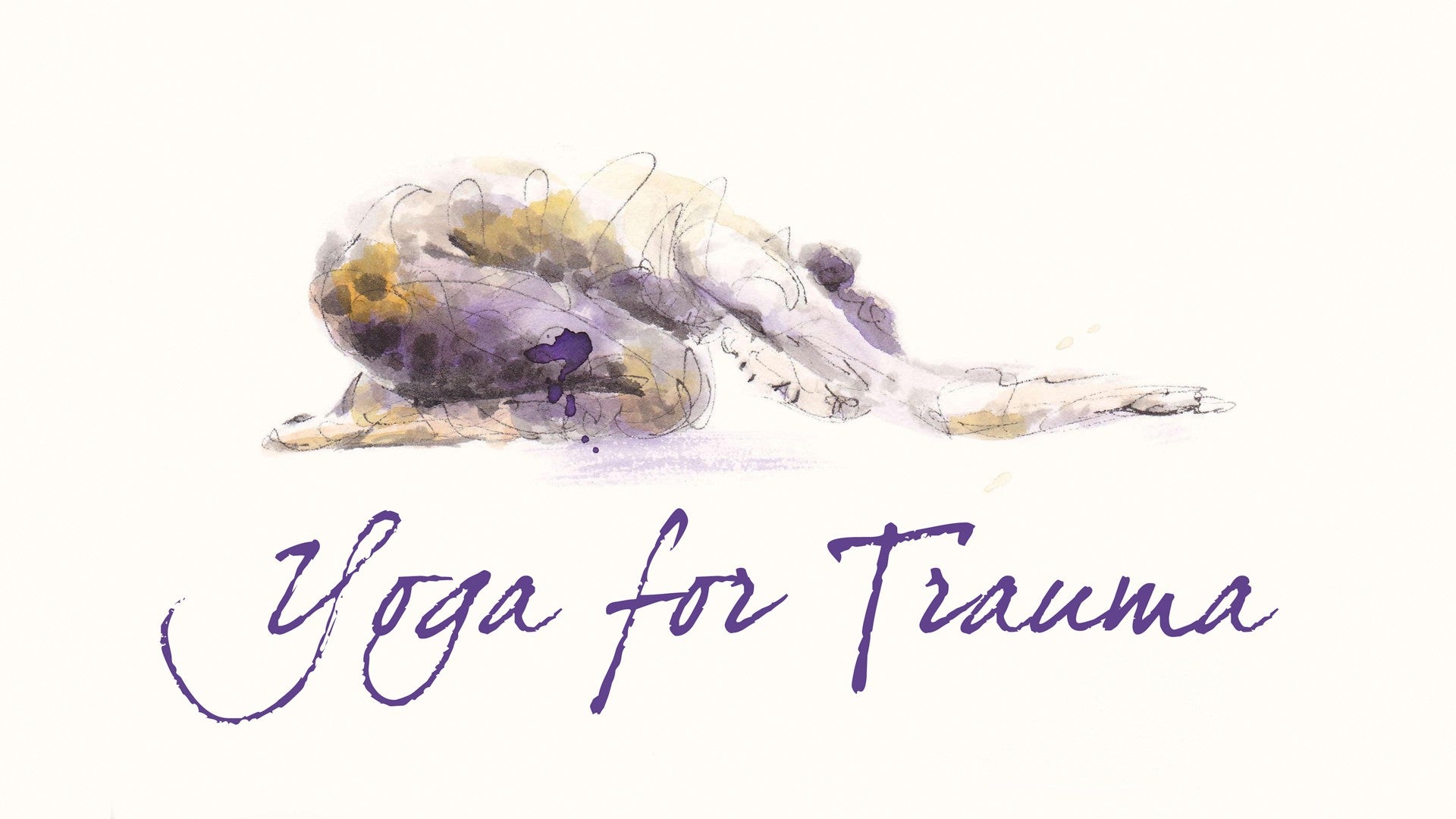Description
About This Video
Transcript
Read Full Transcript
Hi, so I want to talk a little bit today about interoception and why slowing down is so important with doing trauma-informed practices of any sort. Interoception is really one of the key elements of a trauma-informed yoga practice, so knowing about it may help you get into your practice a little deeper. The body has a system that essentially lets the brain know everything that's going on in the internal organs and tissues at all times. That's the interoceptive system. It's a part of the autonomic nervous system that sends cortical representations from the inner body through the neural pathways up to the brain at all times.
So it's basically telling us, am I hungry? I'm untired. Do I have to pee? Do I have an itch? Does that hurt? Does that feel good? Oh, wow, I really like that color. That's making it warm. Am I comfortable? Do I feel happy about this? Do I feel sad? So it's processing everything we're experiencing, and it's essentially laying the template for our subjective sense of self. Anything that has to do with our subjective sense of self is something worth paying attention to. Now, when trauma comes in, it can throw the interoceptive system, as the rest of the nervous system, off. Just a little reminder, and you might want to go back to the first season in the trauma talk about what trauma is, but it's not only what we would call a big tea trauma of war, natural disasters, attack, big car accidents, those, but it's also more subtle or insidious experiences in life. Early developmental misattunement, meaning neglect, emotional abuse, not really even being seen can actually impact people's nervous system in a very big way, particularly when experiences happen early on in life, like medical procedures, falls, dental experiences, divorce for children, all can have a really big impact that can kind of throw the nervous system off. So I'm not just talking about the big stuff, but also the subtler stuff that we can often just explain away of like, oh, that was just hard. But when it throws it off, the interoceptive system can tend to respond in two ways. One, it can become hyper aware, meaning sensations of all sort become overwhelming, right? That would be sounds might feel too loud, colors might feel too bright, smell, often people dealing with a lot of trauma will walk into a space that maybe has incense going or any sort of perfumes that will just be overwhelming to the point where they can't breathe. This could also mean little subtle physical shifts inside of our body, like a tightening or an expanding, an excitement when we're doing something we knew or that we love can actually trigger someone whose neurointeroceptive system is really sensitive to be pretty scared and to move more into the panic state, right? So that would give the brain and the body a sense of being flooded, overwhelmed, and often really panicky. Now, the interoceptive system can also respond in the opposite way of not detecting much sensation when a system's experienced trauma or chronic stress. And that means that not detecting a lot of sensation could result in missing really important cues about what you actually need to stay safe, right? It might mean that you're missing a cue of your stomach gurgling because you're hungry or of your mouth getting dry because you're thirsty, your palms getting clammy because you're actually getting irritated or your muscles getting tight indicating that you're angry about something or that naughty feeling in your belly when you walk into a room and you know you shouldn't be there. If you're not able to sense it, you're not able to respond. And so that's the real issue is that if we don't have access to a healthy system, we're not going to be able to respond. We're going to be reacting to our environment instead. Trauma-informed yoga intends to intentionally slow the practice down so we can fine tune this interoceptive system, really tune into our inner experience and get to know it. So if it feels like we're touching into sensations that are really challenging, touch into it and find ways of regulating, working with it, pendulating, grounding it. And if we're not feeling much, learning how to sense subtly, slowly our inner awareness until it comes back to a more normal range. And I'm not suggesting that this process is easy by any account, especially if we've experienced really difficult things or belief systems or emotions. Going back and touching into the sensations can be scary and hard, right? Whether it's fear or anxiety, sense of abandonment, heartbreak, vulnerability, shame. Those are really challenging sensations to touch into.
But with the trauma-informed lens, especially through somatic practices like yoga, being able to touch into those sensations and also have intentionally one foot in the present moment can help our nervous system remember that it actually survived what we went through. It not only survived, but it has a potential to thrive and expand and grow. So slowing down really gives us access to more choices and hopefully will help us make better decisions about our long-term best interests, or at least just make our own decisions, right? Rather than being hijacked by our emotions, our physical experience. And also slowing down allows us to digest. It's like eating a big meal. If you eat a whole lunch and you're not quite sure you eat it really fast, you won't quite know when you're full. Same thing with sensory experience. For those of us who are working with a lot of freeze in our system, a lot of shutdown, we need a little bit of sensory information. We need a little bit of movement. It might actually go a very long way for our nervous system, right, when we tune in. Because even though we're not sensing a lot sometimes, it doesn't mean that a lot isn't happening under the surface, right? It's about tuning into our awareness of everything the organs and the tissues are experiencing. Now, I don't mean to imply that moving fast is bad at all. Like, especially if it's bringing you joy, do it. Go running, go dancing. Just get that movement out that's so essential to lift the heart up, to bring joy into the system. And just to remember that we have this capacity and agency, absolutely. But making a practice of slowing down intentionally to really tune in and fine tune this introceptive system, this sensing, inner sensing system, is essential to bringing back regulation and health in your life. So as you go through the practices, I hope this comes to mind every once in a while. And even just during your day, I hope you take a moment to just slow down, do your little orienting, right, check into your ground, your earth, and know that you are taking positive action to help you. Thank you so much.
Yoga for Trauma
Comments
You need to be a subscriber to post a comment.
Please Log In or Create an Account to start your free trial.









